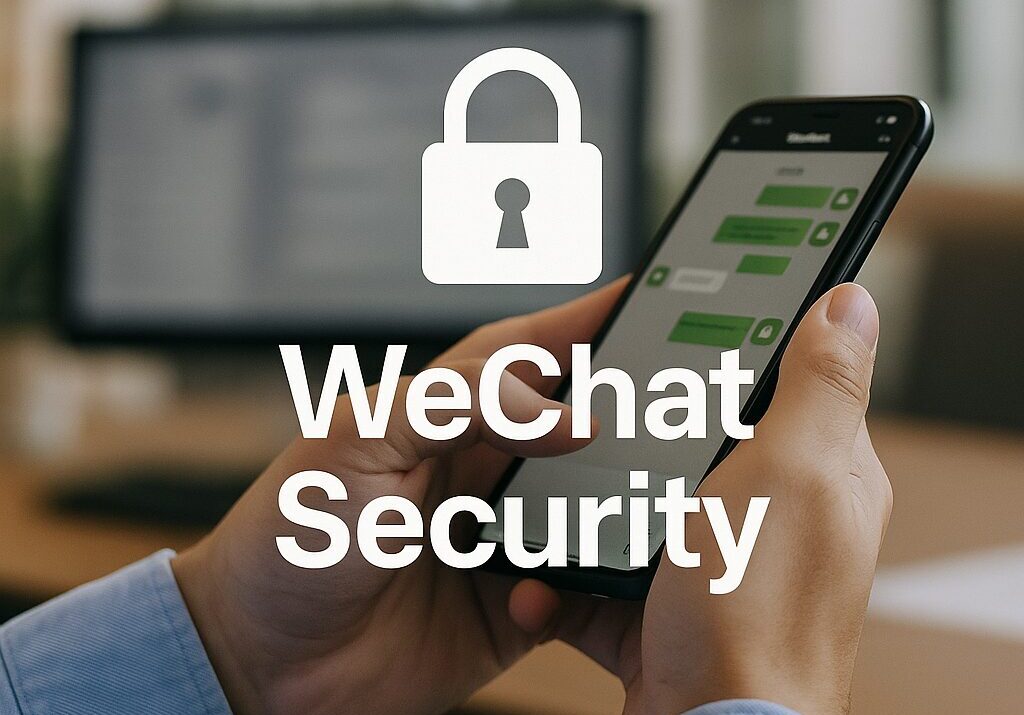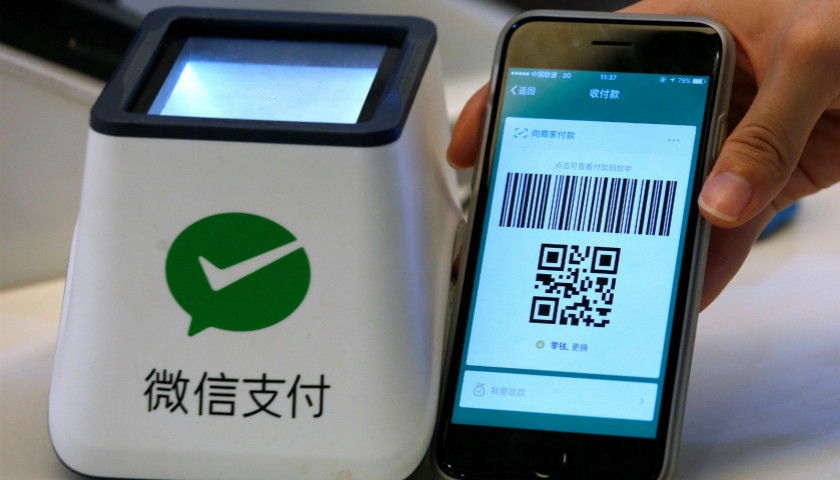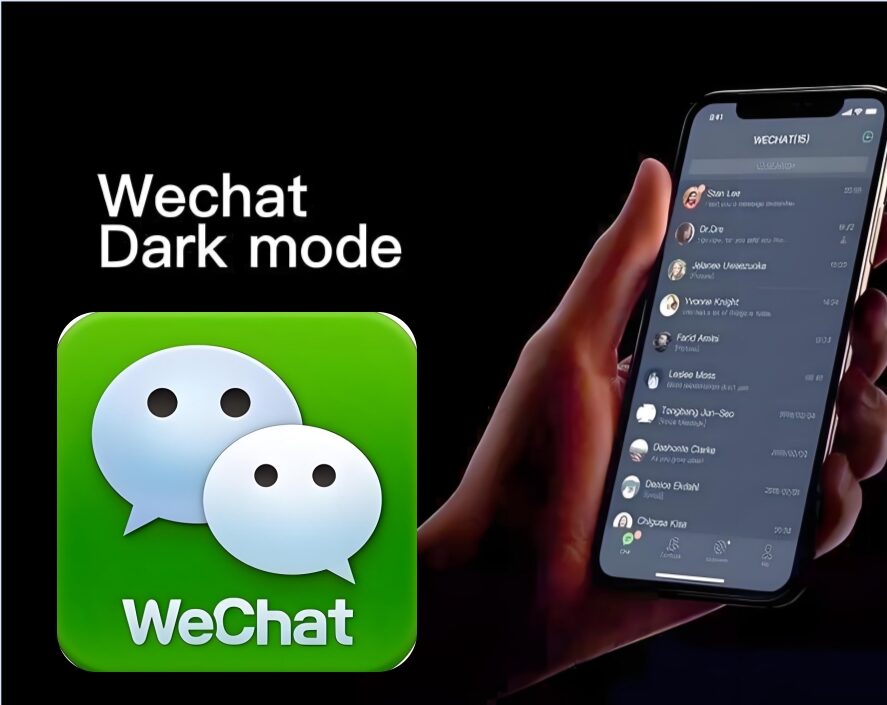Is WeChat safe? It’s a fair question when you realise over a billion people use it every month. From morning coffee orders in Shanghai to festival red packets sent across oceans, it’s woven into daily life in China. And it goes far beyond its borders. But lately, headlines in the US and India have thrown its safety into the spotlight. The concerns go beyond casual chatting. Think payments, privacy, even where your data travels. In this guide, we’ll walk through the key wechat security concerns and wechat security risks. We’ll also cover what it means for US users, and how safe WeChat Pay really is.

WeChat Security Concerns You Shouldn’t Ignore
Data Collection and Usage:
If you’ve ever wondered is WeChat safe, you might not realise just how much it knows about you. WeChat security concerns often start with data collection—it logs your chats, your GPS spots when you open the app, even the contacts you have saved. Tencent says in its privacy policy that this helps “improve services,” but rights groups like Amnesty International have warned it could also be used for targeted ads or, in some cases, government compliance. Most people never scroll through those permissions pages, but maybe we should.
Content Monitoring and Censorship:
One reason people keep asking is WeChat safe to use in the US is because of its content monitoring system. In mainland China, keyword filters run quietly in the background—type certain political terms and your message might not even leave your phone. If you’re abroad, it feels freer, but research shows cross-border chats can still be flagged. Compare that to WhatsApp or Signal, with end-to-end encryption locked tight, and you start to see the gap in wechat security risks.
Third-Party Access Risks:
Ever open a Mini Program for food delivery or payments? You’ve probably tapped “Allow” without thinking. That’s where wechat security concerns get sneaky—some third-party services can scoop up your profile info, purchase history, even location data. Once granted, those permissions often stay until you dig into the settings. It’s convenient, sure, but convenience is usually where privacy slips away first.
Real-World WeChat Security Risks

WeChat Download
Scams, Phishing, and Fake Accounts:
Ask anyone who’s spent time in WeChat groups and you’ll hear the same thing: scams are everywhere. Some are obvious—too-good-to-be-true investment schemes or strangers declaring sudden love—but others are sneakier. In one overseas Chinese group, a fake “friend” dropped a WeChat Pay red packet link; click it and you’d be taken to a phishing site disguised to look exactly like the app. That’s the thing with wechat security risks—they don’t always shout; sometimes they whisper until you click.
Malware and Account Hijacking:
The other big wechat security concern comes when malware finds its way into your device. It might be a PDF from a “supplier,” or a link in a group chat promising festival tickets. Open it and your login session can be hijacked, locking you out while someone else impersonates you. I’ve heard from one user who only realised something was wrong when friends received “urgent” money requests from his account. By the time he regained access, his contact list had been spammed and trust… well, that’s harder to recover.
Business and Sensitive Information Leaks:
In corporate circles, is WeChat safe takes on another meaning. Internal chats can include strategy documents, client lists, or sensitive pricing details. One leaked screenshot from a WeChat work group can travel fast—faster than anyone wants. For overseas companies, there’s the extra headache of data compliance: how do you keep conversations legal under both local and Chinese regulations? Many have switched to splitting “casual” chat on WeChat from formal, confidential work discussions elsewhere, but that’s a discipline not everyone keeps.
Is WeChat Pay Safe for Transactions

Is WeChat Pay Safe
Security Mechanisms and Protections:
WeChat Pay itself is secure.If you’ve ever paid for bubble tea in Shanghai or settled a bill at a tiny noodle shop, you’ve seen how seamless WeChat Pay feels. It’s tied to your account, protected by a six-digit PIN, often strengthened by two-factor authentication and optional password or fingerprint locks for added control. You can fine‑tune privacy settings so transactions stay visible only to trusted contacts, and real‑name verification helps confirm account authenticity. Tencent says payment data is encrypted, monitored for suspicious activity, and supported by transaction alerts. In most daily situations, it works as smoothly as Apple Pay or PayPal. But the question is wechat pay safe doesn’t stop at the tech—it’s also about where and how you use it.
Payment Scam Risks:
The most common wechat security concerns around payments aren’t hackers breaking encryption; they’re everyday scams. In Guangzhou, a friend scanned a QR code on a vendor’s cart—he didn’t notice that a scammer had swapped it earlier. Money gone, no product. In another case, a fake “refund” message prompted users to click a link, leading to phishing sites dressed up like WeChat’s own payment screen. Tools like the block and report function and tips from the in‑app Safety Center can help, but the best defence is still your own awareness. It’s not that the system failed; it’s that the social engineering was convincing.
Safe Transaction Practices:
People who’ve been burned usually get more cautious—they check the number on the screen before scanning a merchant's QR code, avoid making large transfers over public Wi-Fi, and set daily transfer limits themselves. Some even keep a debit card with just enough balance for daily use linked to WeChat Pay—nothing more. It’s not paranoia; it’s practical. And if you’re still wondering is wechat pay safe, the honest answer is yes… but only if you treat it like carrying cash in a busy market: stay aware, keep an eye on your surroundings, and don’t assume every code is clean.
New to WeChat QR? This guide walks you through everything—step by step.
Is WeChat Safe to Use in the US
Government and Legal Context:
Every so often, the question is WeChat safe to use in the US flares up—usually when Washington makes noise about banning it. Remember 2020? There was an executive order hanging over the app’s future, tied to concerns about data access by Chinese authorities. It never fully played out, but the point stuck: in the US, WeChat sits in a political grey zone. You won’t find FBI posters warning you off the app, but you also won’t hear official reassurance that your data’s safe either. That uncertainty alone keeps this a top wechat security concern for US users.
Privacy Differences by Region:
A common assumption is that if you register in the US, you get more privacy. That’s partly true—US-based accounts aren’t bound by exactly the same mainland rules. But “less monitored” doesn’t mean “not monitored.” Cross-border chats, especially those touching Chinese servers, can still be visible to filters. And because is wechat safe conversations often span continents, it’s hard to know exactly where your data travels. Think of it like sending a postcard: it might pass through hands you’d rather it didn’t.
Risk Reduction for US Users:
Some US-based users take a “better safe than sorry” approach. That means tweaking privacy settings so only friends can see your Moments, enabling two-factor authentication, and thinking twice before linking bank cards to WeChat Pay. A few even keep a “clean” second account just for group chats, leaving personal info out of it. It’s not foolproof—nothing is—but it can lower your exposure. And if you’ve ever wondered is wechat safe to use in the us, the answer is: safer if you treat it like a public street, not a private living room.
How to Stay Safe on WeChat
Whether you’re catching up with family, running shop orders, or sharing memes, using WeChat safely isn’t about hiding away—it’s about a few smart habits. Set your privacy settings so only friends can see your Moments, and trim down group chats you barely use—old groups are often where scams creep in.
Think twice before granting Mini Program or third‑party permissions; a quick “Allow” can open more doors than you expect. Use a strong password and turn on two‑factor authentication if it’s available—it’s a small step that can block big problems.
If someone you barely know sends a link or QR code, especially dressed as a red packet or “urgent” file, pause before clicking—many wechat security concerns start exactly there. Is wechat safe doesn’t have a single answer, but it’s safer if you treat it like a busy market: keep valuables close, stay alert, and never assume every smile is harmless.
What Do Experts and Regulators Say About WeChat’s Safety
Security experts often stress that no platform is perfectly safe. However, they agree that WeChat deserves close attention. Privacy advocates highlight its broad data collection and potential links to government oversight. Moreover, they question how user data may be stored and processed.
In the US, regulators view WeChat as a potential national security concern. They cite risks from data sharing across borders. Meanwhile, India has taken the strictest approach, banning the app completely in 2020. These actions show how seriously governments can respond.
Industry analysts provide a more balanced view. They note that WeChat offers strong payment encryption and fraud detection. Still, they warn that technical safety does not erase political and legal risks. Therefore, they advise combining technical tools with careful personal habits.
For travelers, this means using privacy settings wisely and avoiding risky links. While experts debate policy, users must focus on daily safety choices. Ultimately, understanding both expert warnings and government actions can help you decide if WeChat is safe enough for you.
To learn more about official security advice, this is the website you shouldn’t miss!
Frequently Asked Questions (FAQs)
Q: Can I use WeChat safely on public Wi‑Fi in China?
Public Wi‑Fi in China works fine for WeChat, but it’s less secure than using your mobile data. Hackers can sometimes intercept data on open networks. If you must connect, avoid making large WeChat Pay transfers or sharing sensitive files. Using a trusted VPN or sticking to mobile data is the safer choice.
Q: Does using WeChat in China put my foreign bank card at risk?
Linking a foreign bank card to WeChat Pay is generally safe, but always set spending limits and enable payment alerts. The main risk isn’t WeChat itself but phishing scams that trick you into authorising fake transactions. Always double‑check merchant names before paying.
Q: If my WeChat account gets hacked, can I recover it while travelling?
Yes, but it can be tricky if you’re abroad. You’ll need your original phone number, passport details, and sometimes help from a friend with a verified Chinese account to vouch for you. Recovery may take several days, so act fast.
Q: Is it safe to scan QR codes from shops and street vendors?
Most are fine, but QR code fraud exists. Scammers sometimes replace real merchant codes with their own, redirecting your payment. Always confirm the merchant’s name on the payment screen before confirming. In crowded markets, be extra cautious.
Q: Could my WeChat messages be monitored even if I’m just a tourist?
In China, all accounts—local or foreign—are subject to the same monitoring systems. Chat about travel all you want—just know that if you start forwarding political stuff in bulk, the system might flag it. Keep your travel chats friendly and avoid risky topics.


